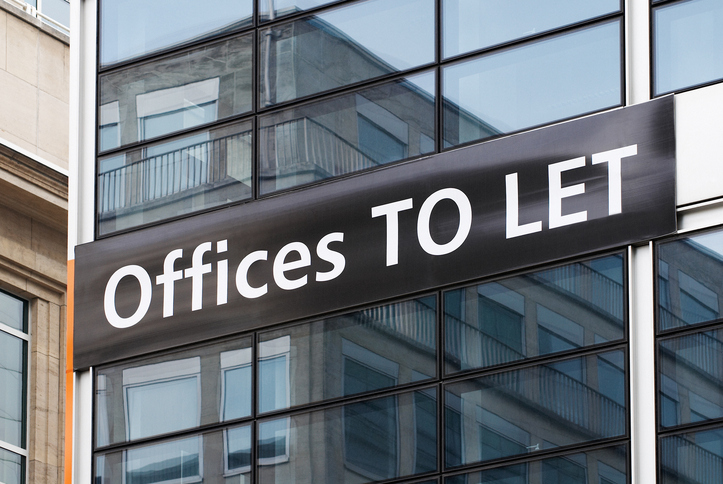Legalities and requirements for commercial lettings
Commercial letting properties require different, often more, checks and requirements than other properties, because they have to be flexible to more uses. Although exactly what you will be required to do will depend on the lease, here is an overview of getting your property ready.
Premises specific health and safety requirements
As a landlord for commercial lettings, you need to ensure that the property is compliant with health and safety laws. Some of these responsibilities are likely to be shared with the tenant, depending on what is agreed in the lease, but there are always some strict codes to adhere to.
Key areas of health and safety to be aware of include: ventilation, lighting, suitable sanitation, washing facilities and drinking water. The renter then has to maintain these conditions.
Different types of premises will have similar requirements, but often for slightly different aims. For example. Dephna, who rent commercial kitchens, say that landlords renting out these type of properties should be compliant with food safety requirements. This is in order for tenants to achieve SALSA and HACCP accreditation for commercial food safety.
While sanitation and safe lighting fixtures will be standard in both offices and commercial kitchens, these additional food safety standards will cover aspects of ventilation and hand washing that wouldn’t be required in non-food based premises. For food and drinks companies looking at rental space, being able to reach more stringent standards of health and safety to achieve these accreditations will be very important; for example, under SALSA food standards, toilets cannot open directly into food handling or storage areas.
Fire safety and assessing areas of risk
The exact nature of your responsibility for fire safety will again be defined in the lease. You will usually have to ensure that your building meets fire safety standards under The Regulatory Reform (Fire Safety) Order 2005. This primarily entails putting in place and maintaining fire safety measures, and carrying out regular fire risk assessment of the premises.
Fire safety measures you may need include fire alarms, fire extinguishers and smoke detectors. Fire extinguishers in particular can require careful consideration as the types and uses very widely. Depending on how your commercial lettings are going to be used, you will need to look at fitting the right fire extinguisher types. Considering the commercial kitchens mentioned above, a water based extinguisher would not be beneficial in a kitchen grease fire, rather a powder extinguisher would be needed.
As the landlord, you may also need to ensure there are safe routes for people to leave the premises, checking that routes are not blocked and that fire and security doors are kept up to code.
Fire risk assessments will most likely be the purview of the building owner, which may or may not be you. You would then need to tell tenants about any risks identified, plan for an emergency and provide tenants with fire safety instruction.
Electrical checks and certification
Commercial letting landlords are responsible for maintaining electrical safety in their properties. A number of statutory regulations, such as The Landlord & Tenant Act 1985 and Housing Act 2004, requires that the electrical equipment is safe at the start of tenancies and maintained throughout.
In order to do so, you must ensure that electrical appliances like sockets, light fittings and kettles are safe. Attaining either a Electrical Installation Certificate (EIC) or a Minor Electrical Installation Works Certificate (MEIWC) will declare that your electrical systems are OK.
Tenants usually have a responsibility for assessing their use of electricity and controlling any risks, however this is again dependent on the lease.
Maintain gas safety with trusted engineers
Another vital requirement for a landlord letting commercially is to ensure gas safety, under such law as the Health and Safety at Work Act 1974. Exactly what duties you have will again be outlined in the lease.
You are likely to have three main responsibilities when it comes to this. First of all you may have to repair and maintain gas pipework, flues and appliances.Secondly, you must make sure gas equipment supplied is safely installed and maintained by a Gas Safe registered engineer, and this engineer must do an annual gas safety check on each appliance. You will receive a Gas Safety Record when this is carried out.
Thirdly, you must give tenants a copy of this record before they move in, or within 28 days of them doing so. You’ll need to keep copies of the record for at least 2 years.
Gas safety is going to be particularly important and may require more frequent safety checks in commercial kitchens, where increased can cause a faster rate of deterioration in equipment.
Be aware of the potential existence of asbestos
Asbestos must be managed in commercial properties under The Control of Asbestos Regulations 2012.The duty holder in relation to asbestos will again be defined in the lease. If the maintenance responsibilities aren’t clearly defined, the legal duty could rest solely with the landlord.
The main duty will be to identify the presence of asbestos within the premises. Whilst it might not be necessary to remove it, you must include it in any risk assessments you conduct.Failure to to properly manage asbestos can result in a fine of up to £20,000 and even up to two years in prison.


